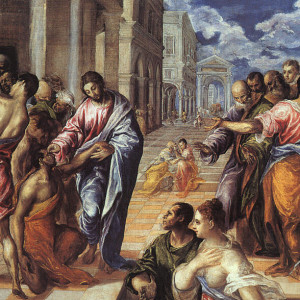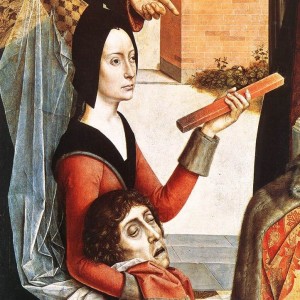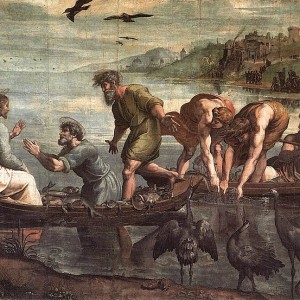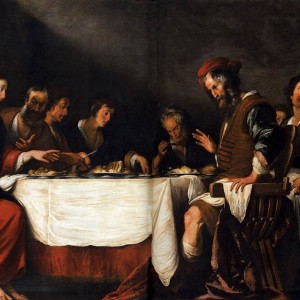The Catholic Deuterocanon – the set of seven books accepted by Catholics and rejected by Protestants – clearly teaches the morality of praying to the Saints and praying for the souls of the deceased. But can we trust that the Deuterocanon is canonical? Evidence from Romans 9 — a favorite passage amongst many Protestants — strongly points to a “yes” answer.
Tag: faith
Be Bartimaeus.
Be Bartimaeus.
The Gospel presents Bartimaeus to us to show us that this is what it looks like to follow Jesus. This is what we’re called to. So what can we learn from him? I would propose three things: (1) see your blindness; (2) beg boldly; and (3) make Jesus’ Way your way.
7 Things to Know about the Synod on the Family’s Final Report
The Synod on the Family has just released its final report. Here are seven things you should know about it.
The Repulsiveness of Christ
When we’ve tried everything we can think of to lead someone to Christianity and it doesn’t work, it’s so easy to blame ourselves: to think that if we had done everything just so, or found just the right combination of words, everything would have clicked, and they would have accepted Jesus Christ. If we were only a little more compassionate, or a little smarter, or a little more persuasive in our speech. This reaction is discouraging, and what’s more, it’s often false. It gets three things wrong: grace, free will, and Jesus.
Trial by Fire: Modernity’s Response to Miracles
We moderns think of trial by ordeal as proof positive of the irrational dogmatism of our religious ancestors’ culture. The idea of determining someone’s innocence or guilt by having them hold a red-hot iron seems, well, insane. But new evidence suggests that the process worked… and might provide documentary evidence of a huge number of miracles. That modern researchers refuse to even consider this possibility reveals a great deal more about the irrational dogmatism of our own irreligious culture.
The Untamed Virgin Queen
The world has just learned that three more Assyrian Christians have been executed in a particularly barbaric way by ISIS… who’ve promised to continue this murderous campaign if the Christians of the Middle East don’t submit. Pope Francis has repeatedly tried to call our attention to the ongoing genocide of these Christians, and that’s exactly what it is: a systematic attempt to wipe Christians off of the map, permanently.
All of this bloodshed is being perpetrated in the name of a radical and expansionist form of Islam. To be sure, this isn’t the only form of Islam practiced, but it is nothing new, either. From the very beginning, there have been groups, beginning with Muhammad himself, who sought to spread Islam by the sword.
The Heretical Case Against the Synod
Even a number of ordinarily sober-minded Catholics have begun panicking that the Synod on the Family is about to lead the Church into apostasy. While we should always pray for the Church, and pray especially for the Synod, these fears are unfounded… and heretical.
12 Tips for Chaste and Intentional Dating
Two of the biggest traps in dating are impurity and aimlessness. Here are twelve practical tips to avoid these trips.
How Richard Dawkins Helps Prove Biblical Inspiration
When Richard Dawkins and American Atheists write off the Bible as a “Bronze aged book,” they’re only demonstrating their historical ignorance and the strength of the case for Biblical inspiration. If the human authors of Scripture were primitive ignoramuses, how do we account for the credibility of the Apostles’ testimony?
The First Step in Learning to Forgive
Every day, when we pray the Our Father, we ask God to “forgive us our trespasses as we forgive those who trespass against us.” If we refuse to forgive others, we’re asking God to hold us to our own unforgiving standard. This is a hard message, because it’s hard to forgive others when we’ve been hurt. Jesus recognizes it. When He introduces the Our Father, this is the only one part He feels the need to explain. But He doesn’t say “forgive, unless it’s hard.” He says, “if you forgive men their trespasses, your heavenly Father also will forgive you; but if you do not forgive men their trespasses, neither will your Father forgive your trespasses” (Matthew 6:14-15).









